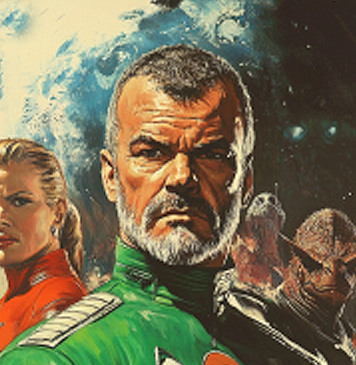I’m speaking of creative works in particular. I’m generally in favor of the media entering the public domain when the artist dies, but when something enters the public decay, shit gets weird. Having Spongebob as IP keeps him on rails for who he is as a character. Change that, Spongebob as a character is changed by the public that could make the original unrecognizable. What’s the line when a derivative work becomes it’s own IP? What do you think?
Yes, it should. Artists should be able to live without justifying their existence to the economy, everyone should… And then they could make money on their creations, and if someone came along who could use their characters better, then oh well… They still get to eat. But the original creator is usually be better at making their OC… And companies are the ones who usually hold the copyright even if a single employee made it
So fuck it, I’d rather make sure everyone can eat and have a home first, but if we did it in the opposite order the damage would be minimal to individual artists
The original term of US copyright, assuming nickelodeon was studious about filing to renew copyrights, would have the Spongebob copyright expiring in three years.
Never forget what was stolen from us.
Before copyright, storytellers sharing and reusing characters, settings, and plots was the norm. It’s the way humans evolved to tell stories, over tens or hundreds of thousands of years. We instinctively want to hear stories about characters we already know, and to see new twists on familiar tales—“shit getting weird” is the point. It’s why franchises, fan fiction, and adaptations are so popular.
And copyrights were never intended to protect the work of artists—they were introduced after the invention of the printing press to censor subversive works being written for a newly-literate public, and quickly evolved into a means of creating monopolies for commercial printers. Writers were eventually given a stake in order to create a new rationale for copyright laws after they were suspended due to public backlash—but that was a minimal concession by the real commercial beneficiaries, not the main purpose.
Exactly. Great comment!
Based answer and the only good one in this thread.
Copyright’s purpose is to improve the public domain. If it doesn’t do that, then its harmful and should be reduced or abolished.
To keep copyrighted content relevant at the point it enters the public domain, copyright should be shortened to 20 years for creative works (films, music, paintings, Spongebob).
Consider the current public domain, which contains things like fairy tales. People remix and retell fairy tales all the time, and it makes for good stories.
Having ip doesn’t project your character from being distorted by the public in ways you don’t expect. Similarly, not having ip doesn’t mean that the character is now completely out of your control. Others have provided examples such as Sherlock Holmes and Shakespeare where the characters are in the public domain but still keep their original meanings despite being changed by fans.
It depends on what you think the purpose of keeping creative works outside of the public domain is. Generally, the idea is so that the original creator can make a living off of their art without someone immediately copying their work and undercutting them. The idea of keeping a character true to the original interpretation is not usually considered in this discussion.
Personally, I believe that IP should enter the public domain way sooner than it actually does. I’m generally in favor the original definition of 14 years, with a 14 year extension before the work enters public domain. That gives someone 28 years to make a living off of a character before the ideas become free game for others to use and adapt in any way they see fit.
Having Spongebob as IP keeps him on rails for who he is as a character. Change that, Spongebob as a character is changed by the public that could make the original unrecognizable
I fundamentally disagree with this premise. The vast majority of characters that are in the public domain are not significantly different from their source work, outside of a handful of modern exceptions. Dracula is still mostly Dracula, even in the modern day. Same for Sherlock Holmes, or anyone in a Shakespeare play. The idea of completely twisting a character once they enter the public domain happens, like with Blood and Honey, or that Popeye horror movie coming out, but I think you’d struggle to find anyone that only knows Winnie the Pooh or Popeye from their modern, cheesy slasher adaptations rather than the original stories.
I think that license similar to what D&D has is having a cake and eating a cake. You open your word to be used which grows the community, but you remain the control on key characters and aspects, so your onwers intrests are protected.
deleted by creator
There are 3 main forms of IP: patents (not relevant here), copyright and trademarks. Without consent of the holder, copyright only runs out on a time basis but what you’re calling IP falls into the “trademark” category, which don’t run out if continuously used by the holder. Some trademarks have become genericized and therefore invalid but this is a concern with product names, not fictional characters. There is no precedent in which fanon became so popular it overruled a trademark, because it can’t be published officially (it is easy to sue a single artist, it’s impossible to stop millions of people from calling any moving stairs “escalators” despite the former OTIS trademark).
Did you mean fanon “so different a trademark doesn’t apply”? That would be a different character entirely.




